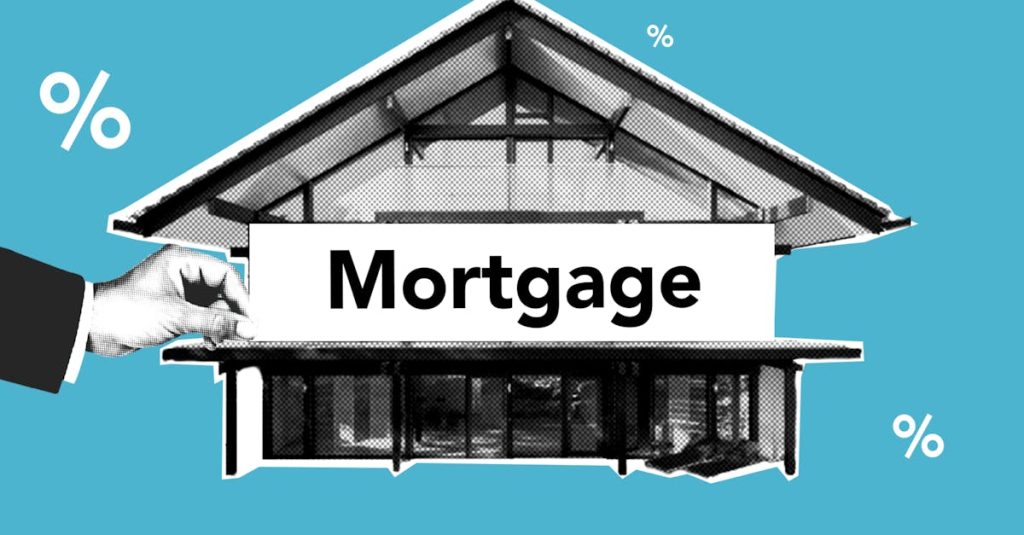Demystifying Financial Tools in 2025: Understanding the Impact of the Latest Federal Interest Rate Decisions on Your Small Business Funding Options
Estimated reading time: 6 minutes
- Current federal interest rate changes and their impact on small business funding options.
- Summary of SBA loans, Merchant Cash Advances (MCAs), and business lines of credit in light of rising rates.
- Strategies for minimizing the impact of interest rate fluctuations on your business financing.
- Importance of maintaining a strong business credit score amidst changing economic conditions.
- How to navigate funding options with expert guidance.
Table of Contents
- An Overview of the Recent Federal Interest Rate Changes
- The Rationale Behind the Rate Hikes
- How These Changes Affect Various Funding Options
- SBA Loans
- Merchant Cash Advances (MCAs)
- Business Lines of Credit
- Strategies to Minimize the Impact and Maximize Benefits
- Effective Financial Tools to Monitor and Manage Business Credit Score Amidst Economic Changes
- Conclusion
- FAQ
An Overview of the Recent Federal Interest Rate Changes
The Federal Reserve plays a significant role in shaping the economic climate through its monetary policy, primarily adjusting the federal funds rate to control inflation and influence economic growth. As of early 2025, the Federal Reserve has implemented a series of interest rate changes aimed at curbing inflation and stabilizing the economy. For instance, the federal funds rate has experienced multiple hikes, climbing to a range of 5.50% to 5.75%, adjusted from lower rates observed in previous years (Federal Reserve Economic Data).
The Rationale Behind the Rate Hikes
In response to persistent inflationary pressures and a recovering job market, the Federal Reserve’s decision to increase interest rates aims to achieve price stability. The rationale includes:
- Controlling inflation, which can erode purchasing power.
- Preventing an overheating economy that could lead to unsustainable growth.
- Encouraging savings while discouraging excessive borrowing.
These adjustments have broad implications for small business financing and must be considered when exploring funding options.
How These Changes Affect Various Funding Options
With interest rates on the rise, it’s essential to understand how these changes will impact various funding products available for small businesses.
SBA Loans
SBA loans, particularly popular for their favorable terms, are typically influenced by the prime rate, which correlates with the federal funds rate. As interest rates increase, the cost of borrowing through SBA loans will rise, resulting in:
- Higher monthly payments for business owners.
- Potentially lower loan amounts approved by lenders, based on the higher cost of capital.
However, SBA loans often feature fixed rates for the duration of the loan, offering predictable repayment schedules. Consequently, if you’re considering an SBA loan, now may be the right time to lock in a viable rate before potential further increases.
Merchant Cash Advances (MCAs)
Merchant cash advances are another financing option impacted by rising interest rates. MCAs operate differently from traditional loans, providing upfront cash in exchange for a percentage of future credit card sales. The cost of capital linked to MCAs may rise with higher interest rates, leading to:
- Increased repayment amounts based on fluctuating sales figures.
- More stringent qualification criteria from lenders due to perceived risk in a higher interest environment.
As a result, businesses that rely heavily on cash flow and retail sales might find this option less sustainable during economic fluctuations.
Business Lines of Credit
Business lines of credit offer flexible funding, allowing borrowers to draw funds as needed. Interest rates on these products are usually tied to the prime rate or LIBOR (London Interbank Offered Rate), both of which are affected by changes in the federal funds rate. Increased rates can lead to:
- Higher variable interest costs on borrowed amounts.
- Changes in borrowing limits if lenders tighten their lending criteria in response to higher risk.
Utilizing a line of credit may still be advantageous for businesses planning to finance short-term projects or manage cash flow inconsistencies, especially if you anticipate needing funds within the next several months.
Strategies to Minimize the Impact and Maximize Benefits
With the ever-changing interest rate landscape, it’s essential for business owners to adopt strategies that can minimize the impact of rising rates while leveraging funding opportunities for growth. Here are three practical strategies:
1. Lock in Rates Where Possible
If you’re considering long-term financing options like an SBA loan, now might be the time to act. By locking in a current interest rate, you can safeguard against potential future increases, ensuring that your repayments remain manageable over the loan term. Consult with a funding expert at Big Think Capital to explore the best options for locking in rates.
2. Diversify Your Funding Sources
Relying on a single source of financing can expose your business to greater risk. By diversifying your funding options, you can allocate resources more effectively and manage cash flow. Consider combining a business line of credit for short-term needs with a stable long-term SBA loan for significant investments in growth. This diversified approach can help absorb challenges from rising interest rates and fluctuating sales.
3. Monitor Your Business Credit Score
Your credit score plays a vital role in securing financing, impacting both the interest rates available to you and your eligibility for loans. In a fluctuating economy, take proactive measures to monitor and improve your credit score. Make timely payments, reduce existing debts, and keep your credit utilization below 30% of your total available credit. Tools available through Big Think Capital can help track your progress and identify areas for improvement.
Effective Financial Tools to Monitor and Manage Business Credit Score Amidst Economic Changes
The health of your business credit score is crucial for leveraging favorable financing options. Under current economic conditions, monitoring your credit score is more important than ever.
Utilize Credit Monitoring Tools
There are various credit monitoring services available that provide real-time updates on your credit standings. These tools can alert you to significant changes that may affect your score, allowing you to address issues promptly.
Engage with Funding Experts
Consulting with experts in small business financing can offer personalized advice tailored to your unique situation. At Big Think Capital, our funding specialists can help guide you through your financial decisions, helping you understand the nuances of available products in light of current interest rates.
Build a Strong Financial Network
Surrounding yourself with knowledgeable professionals—such as accountants, financial advisors, and business mentors—can provide valuable insights and support. This network can help you navigate the complexities of funding in an ever-changing economic environment and ensure you are well-prepared for any financial challenges ahead.
Conclusion
Understanding the impact of the latest federal interest rate changes is key for small business owners as they plan their financing strategies for 2025. By staying informed of how these changes affect funding options—including SBA loans, MCAs, and lines of credit—you can make strategic decisions that position your business for success.
As you evaluate your financing options and develop methods to mitigate the effects of interest rate increases, remember to explore the services offered by Big Think Capital. We are here to assist small businesses like yours in navigating their funding needs with expertise and care.
Ready to take the next step? Visit us at bigthinkcapital.com or speak with one of our funding experts today to explore customized financing solutions that fit your business’s needs.
FAQ
What are SBA loans?
SBA loans are loans backed by the Small Business Administration designed to assist entrepreneurs in gaining access to capital at favorable terms.
How do interest rates affect my loans?
Higher interest rates typically increase the cost of borrowing, which can lead to higher monthly payments and affect the amount a lender is willing to lend.
What strategies can I use to manage rising interest rates?
You can lock in rates where possible, diversify your funding sources, and closely monitor your business credit score to strengthen your financial position.
Where can I find help with financing options?
Consulting with funding experts, such as those at Big Think Capital, can provide personalized guidance tailored to your business needs.






